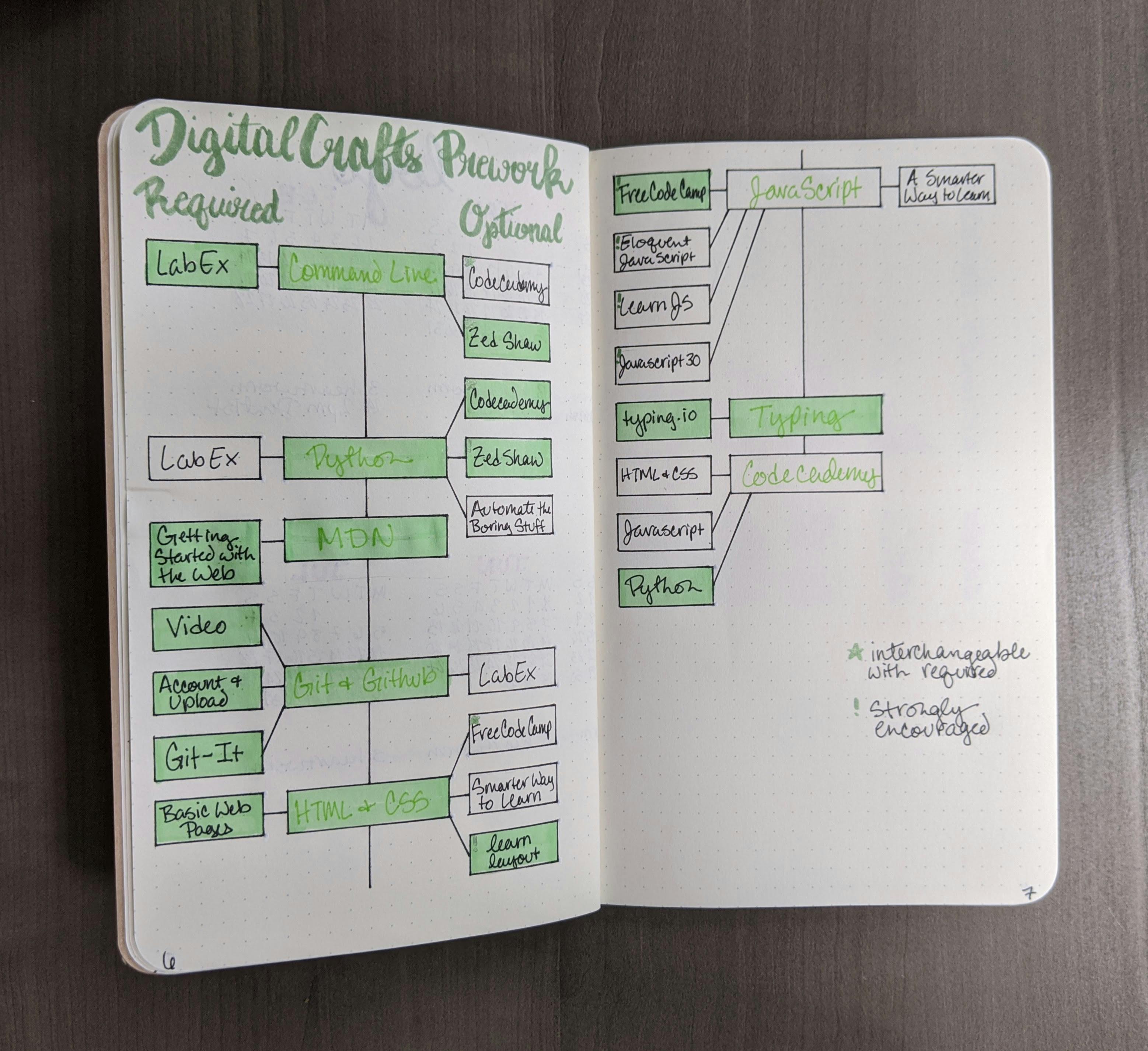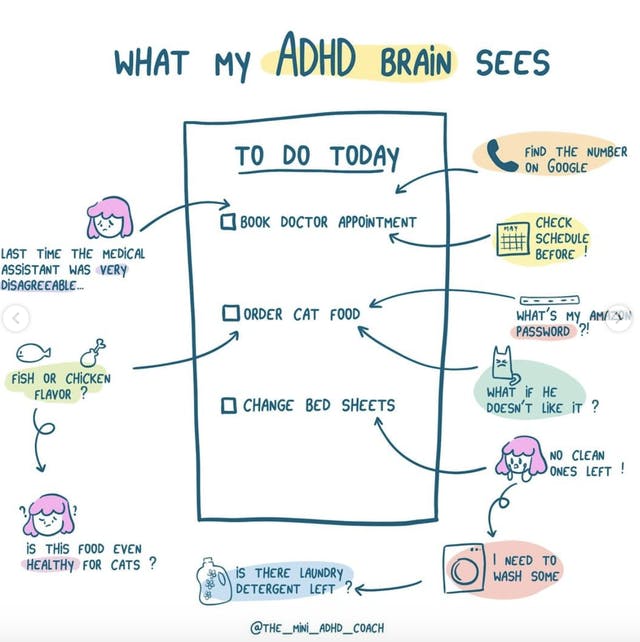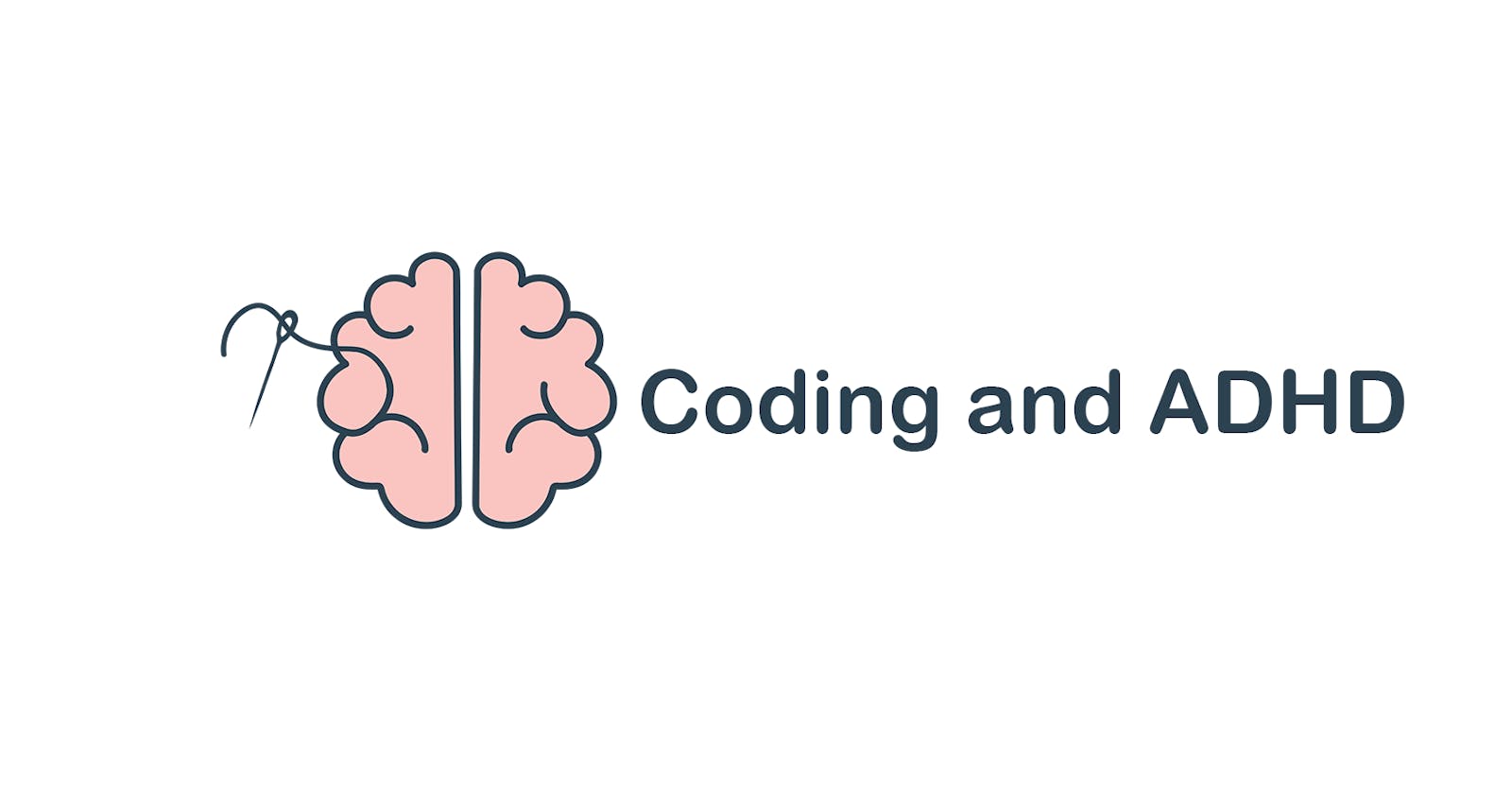Gabor Maté has described ADHD as "forgetting to remember the future." If it's not written down, I'm not getting it done.
Make an External Brain
I've seen a couple organizational/productivity systems out there that rely on the idea of an "external brain." Even neurotypical brains struggle to maintain a list of all the things that we're expected to do on a daily basis, let alone consistently work towards multiple goals at a time. An external brain is a system or systems that holds all of your to dos and helps you track your progress towards your goals.
For me, this term just formalized a feeling I had always had - my brain cannot be trusted to remember the details I need the moment I need them. As a result, every time a thought that requires future action passes through my brain, I write it down.
You can ask my coworkers - if we're in a meeting and it's not going to be written in a ticket, I'll ask them to give me a second so I can make a note. If it's a task, I write it down with a checkbox next to it. Then I ask clarifying questions about deadlines, goals, and expectations and make more notes. In the 14 years I've been in the workforce, no one has ever objected to me saying "wait, I need to write this down."

This extends to interviews - I show up with notes from my research on the company, a list of questions I want to ask, and take notes during the interview. If an interviewer asks me multiple questions at once, I'll repeat them while writing them down before I start answering.
An external brain doesn't just have to be for tasks or work. All brains have a tendency to remember negative things better than good things. Writing down your accomplishments and positive memories may help you a lot. I maintain a "Today I celebrated" list so I have to give myself a pat on the back every day.
If I find I struggle with something I have to do regularly, I'll turn it into a log or checklist. If a goal requires doing something a little bit every day, I'm writing down that I have to do it every day. I have a packing list for trips, a habit tracker for things like watering the plants once a week, and a list of all the plants I need to water. When I was initially studying web development, I turned the pre-work list I struggled to read into a chart with boxes I could color.

If you're a web developer, you may enjoy creating a digital garden to record and visualize your learning.
Organizational Systems
Writing it down is one thing - how do I make sure I can find it when I need it? People with ADHD are often surrounded by lists and journals. We love starting organizational systems. The problem is maintaining one for any meaningful period of time. So I don't maintain one - I maintain many. I've found a few rules that keep me coming back:
- I enjoy something about the method.
- It lives in a place where I can't escape it.
- It has to be something I can still maintain if I forget to look at it for a day or two.
- I have to be able to shift tasks around between days easily.
For school and work, I have always maintained a daily to do list. At the end of each day, I start a brand new page, write the next day's date at the top, and list out the day's tasks with checkboxes. During school, all my notes went in one notebook. Now, the notes and the to do list live in the same notepad. To keep myself coming back, I find pens and paper that I enjoy using.
Now that I'm remote, my work to do list stays next to my work computer in my office. When I was commuting to school and work, I never unpacked my backpack. Everything I needed, including my lists and calendars, stayed in that bag unless I was actively using them.
Digital calendars make things a lot easier than they used to be, but I still maintain a physical calendar I draw as well. I find that I have to sit down and think about each week and month or I'll lose all sense of time. I maintain all my long-term personal to do lists, logs, checklists, and trackers in the same notebook as this calendar. I manage to keep coming back because I turn it into an art project and have found a few lazy ways to get it done when I'm really not feeling it.

Finally, each morning (or afternoon) I look at my work to do list and personal calendar and pick all the personal tasks I want to accomplish that day. This way, I'm not constantly referencing a giant, long-term to do list I can never finish. I'm only looking at the things I need to attempt in the next 12 hours or so.
I have an app on my phone that has my daily to do list and allows me to share a to do list with my husband. A shared to do list turns "do the thing" and "talk to him about doing the thing" into one item. We are sharing our digital calendars with each other for the same reason. I used to keep my personal to do list on a post it note on my water bottle. These work because I have trained myself to keep my phone and water bottle on me. Back in high school and college, I used to have to write it directly on my hand.
Conclusion
Do not think this means I have a pristine set of lists that are perfectly maintained and monitored. I have plenty of abandoned Google Drive folders, a shelf of journals too pretty to use, a gardening journal I find and lose once a year, and a hodgepodge of yoga journals and papers shoved under my meditation altar. I have piles of uncompleted projects and many abandoned goals, as well.
Kind of keeping up with the things I need to do and events I need to attend is an exercise in self-forgiveness. Once I start a new to do list, the old to do list is dead to me and any uncompleted tasks are treated like brand new to do items. Any time I achieve a long-term goal, I celebrate the heck out of it.
Did I miss a resource or tip you love? Do you really love an organizational tool or system? Leave a comment!
Up Next:

